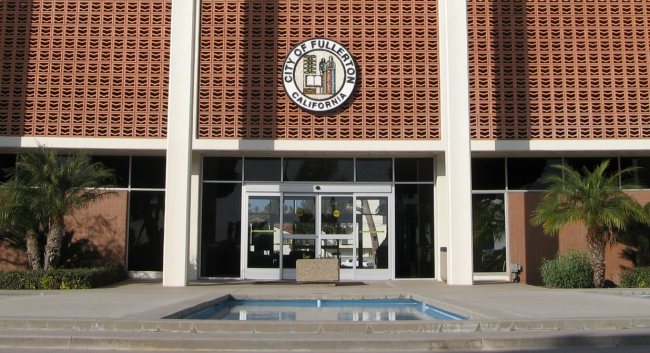by SUEVON LEE | @suevlee
editor@charactermedia.com
Two prominent civil rights groups on Wednesday filed a lawsuit against the City of Fullerton, located in Orange County, Calif., alleging that its at-large election system dilutes the Asian American vote in violation of the California Voting Rights Act.
The suit was filed on behalf of Korean American community organizer and Fullerton resident Jonathan Paik by the Southern California chapter of the American Civil Liberties Union and the advocacy group Asian Americans Advancing Justice.
The suit argues that Fullerton’s at-large elections system, which allows any eligible voter in the city to vote for any candidate regardless of where they reside, creates a racially polarized voting pattern where the city’s white majority vote is preventing Asian Americans from wielding any real electoral influence.
From the city’s founding in 1887 up until present day, “despite the fact that many Asian American candidates have run for Council seats, only two Asian Americans have ever won election to the City Council,” the complaint states.
Asian Americans make up nearly a quarter of the city’s population while 54 percent is Caucasian and 34.4 percent Latino. No Asian Americans or Latinos currently sit on Fullerton’s five-member City Council, in which members are elected to four-year terms and elections are held on a staggered basis on even-numbered years.
Last year, Vivian Jaramillo, a Latina candidate who ran unsuccessfully for City Council in 2006 and 2012, sued the City of Fullerton, alleging vote dilution among Latino residents under the city’s at-large elections system.
Paik’s suit seeks an order requiring the city to adopt an alternative election system, such as a district-based system where candidates from a district are elected by voters of that particular district.
“If you look at the last several elections when an Asian candidate has run, that candidate has ben preferred by a majority of the Asian electorate,” Laboni Hoq, litigation director at AAAJ, told KoreAm. “But because of the way the at-large system works, that voice gets drowned out by the majority, and they tend to elect candidates who are white or of another ethnicity.”
With a population of roughly 135,161, Fullerton is one of the largest cities in California that still holds at-large elections, according to the complaint. In March 2013, Escondido, just north of San Diego, settled a similar voting rights lawsuit by moving to a district-based election system. And last November, voters in Anaheim approved a ballot measure, prompted by another voting rights lawsuit, proposing the city switch from at-large elections to district-based voting. Anaheim residents will be able to vote for two additional City Council members based on districts come 2016, according to the Orange County Register.
“There is clearly a will and desire for the Asian American community to run and be represented in [Fullerton’s] City Council. But the at-large election system prevents that,” Brendan Hamme, an ACLU attorney who helped file the suit, told KoreAm. “I would think once Asian Americans are aware that they have a real shot at being elected and having their voices heard on the City Council, that would galvanize even more people than we’ve seen to run for office.”
Paik’s complaint argues that an alternative voting system is particularly important in Fullerton due to the “long history of discrimination against Asian Americans throughout Orange County,” including a U.S. Department of Justice investigation that found a pattern of racial discrimination against minorities in hiring practices for the city’s police and fire departments between 1986 and 1993 and the repeated questioning of a former Asian American council member’s citizenship status by Fullerton residents back in 1996.
More recently, the complaint notes, Young Kim, a Korean American who in November was elected to the California State Assembly District 65, faced off against an opponent, Sharon Quirk-Silva, who deployed the phrase “Not One of Us” next to Kim’s photo in her campaign mailings.
The complaint also points out other problematic voting practices in the city, such as an elections website that has translations in Japanese and Chinese “hidden from immediate view” despite the fact that 66 percent of Fullerton’s Asian American population is foreign-born.
Paik, a 27-year-old who works as a civic engagement coordinator at the Korean Resource Center in Buena Park, told KoreAm on Wednesday that as a longtime resident of Fullerton, he has always felt “a disconnect from city government and that my voice couldn’t be heard.”
“We’re hoping that we’re able to elect an official, in my voice, [representing] my interests in the community,” he said. “I believe that with a district-based election system, that becomes more possible, getting an elected official from a particular community.”
KoreAm has not yet heard back from Fullerton city officials regarding the lawsuit.
___





